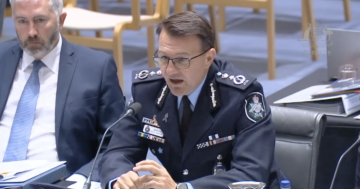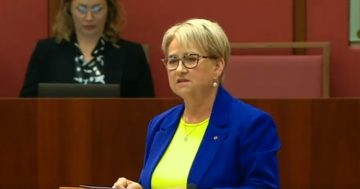
PwC is still in a whole lot of trouble. Photo: David Murtagh.
The Robodebt inquiry didn’t just reveal appalling behaviour by responsible public servants and Coalition ministers. It exposed a corrosive culture inside the APS and the businesses it contracted under a government that rejected independent advice if it didn’t suit its pursuit of power.
The Robodebt catastrophe was unfolding around the same time the PricewaterhouseCoopers tax leak was brewing in 2016-17.
The inquiry’s report details how the social services department paid PwC more than $850,000 for a report on Robodebt that was never delivered.
The upshot is that in 2017 PwC proceeded to execute its contract with the department to produce an independent report on improving the scheme and whether it was meeting budget outcomes.
PwC’s early draft advised Robodebt had failed and should be replaced.
The department’s response was to suppress the advice, pay PwC off and tell it not to deliver the final report.
The commission found that PwC’s advice was seen as so damaging to the department and its leader, Kathryn Campbell’s reputation that it was best PwC not produce a final version.
What a shocking message to send to PwC and other consultants vying for work from a diminished APS.
PwC offered on Saturday to repay the money for its Robodebt non-advice.
It’s the right thing to do.
But if PwC leaders think doing that, or sacking a few partners and flogging off its hapless government advice arm, will solve its trust issues with government they’ve lost their minds.
The fury across parliament over the firm’s leaking of government tax plans and its continuing cover up is palpable.
Nothing PwC does to try to heal the wound the tax leak has inflicted will quell the outrage until it delivers all the detail, and in public.
PwC’s nightmare kicked off last year when a former senior partner was barred for sharing confidential Treasury information on multinational anti-tax avoidance plans and schemed with its global tax team to use it to drum up business.
Seven separate inquiries into the tax leak scandal are now underway, the most advanced led by Labor Senator Deb O’Neill, Greens Senator Barbara Pocock and Liberal Senator Richard Colbeck.
Treasury has referred it to the AFP and the Greens to the National Anti-Corruption Commission.
AFP Commissioner Reece Kershaw has been caught in the scandal’s web. Next week he’ll front a special estimates hearing to explain the force’s relationship with PwC.
A furious federal government has halted its relationship with the firm. The NSW and Queensland governments and major super funds have followed suit.
The loss of valuable government contracts inspired another extraordinary moment in this rolling saga when PwC sold its government advisory business for a token $1 to private equity firm Allegro.
Allegro says it expects to employ around 1700 affected staff who’ll be vetted to ensure they weren’t involved in the tax leak.
That implies Allegro will have access to information PwC has not yet provided to the Senate inquiry, despite its repeated demands the firm identify all involved, including in its US and UK offices.
Neither has the firm revealed the names of 14 multinational companies referred to in a cache of heavily redacted PwC emails, which O’Neill secured.
The emails suggest US laws may have been breached.
The senators are determined to crack open the international links, with Colbeck warning PwC that trying to quarantine the scandal to Australia won’t work.
O’Neill is now leading an inquiry into the big accounting firms’ corporate partnership models and the culture that permitted the PwC tax leak and its cover up.
It’ll question whether the firms can ‘walk both sides’—provide government advice on tax and other laws while also advising wealthy clients keen to avoid government reach.
No one buys the firms’ claims that client information is protected by invisible internal walls and not shared by employees any longer.
Both shameful episodes expose deep conflicts of interest within, and between, the government and the big consulting firms, conflicts that have harmed Australians.
We deserve better from the APS and those it pays for advice. We’re entitled to full transparency and integrity in the government’s business.
Original Article published by Deb Nesbitt on Riotact.








